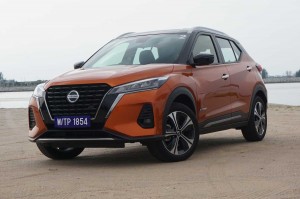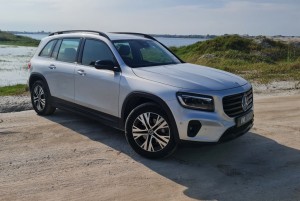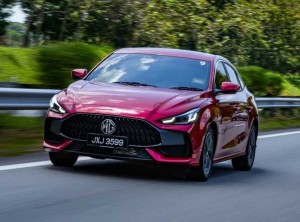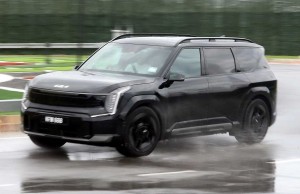Germany's MAN tests self-driving lorries on autobahn
By DPA | 19 April 2024
MUNICH: German vehicle manufacturer MAN has been testing driverless lorries on the motorway for the past couple of days.
On Thursday, German Transport Minister Volker Wissing ventured on board a computer-controlled semitrailer truck on the A9 near the southern city of Munich.
"Our goal is to become the lead market for automated and connected driving," the minister said.
It could help to cope with the increasing volume of freight despite the growing shortage of drivers, he said. With the law on autonomous driving, which dates back to his predecessor, Andreas Scheuer, Germany has "taken the leading position in Europe," Wissing said.
MAN developed the test vehicle together with suppliers Bosch, Knorr-Bremse, Leoni, TÜV Süd and other partners and tested it on the company's own test site. With a special permit from the German Federal Motor Transport Authority, it is now going out on the highway.
The truck is always monitored remotely by employees in a control centre and, if necessary, steered and braked, MAN spokesman Gregor Jentzsch said. There is also a safety driver at the wheel who can intervene at any time, the company said.
Manufacturers and suppliers are hoping for big business with self-driving trucks.
Daimler Trucks, which has already been using self-driving trucks on highways in the US for a year in pilot projects with customers, wants to launch them regularly on the market in 2027 and generate US$3 billion in sales and US$1 billion in earnings before interest and taxes in 2030, according to Daimler spokesman Paul Mandaiker.
MAN does not yet have such concrete plans. Steps "towards series production" are not planned until the end of the decade, said MAN chief executive Alexander Vlaskamp.
Self-driving trucks may be a solution for several problems facing the haulage sector, including a shortage of drivers in Europe and the US. autonomous lorries also do not have to observe driving times and rest breaks: They can theoretically drive around the clock.
They won't get tired or inattentive, and the number of accidents is likely to fall.
But some in the industry are sceptical, saying that there is a multitude of technical problems still to overcome.
Then there are the high investment costs. Both lorry manufacturers and haulage companies will have to invest a lot of money in the conversion to electric vehicles over the next few years, which is required by law and is now a priority.
Tags
Autos News
Reviews

Nissan Kicks e-Power: Kicking off a new efficiency

6.8
Mercedes-Benz GLB 200: Measured versatility

MG5: Slick and comfortable cruiser

8.2
Kia EV9: Prime cut

8.0
Triumph Tiger 1200 GT Pro: High adventure on two wheels

8.0
Honda Civic Type R (FL5): Ride on the wild side

Mitsubishi Xpander facelift: Expanding the reach

First drive of Geely Galaxy E5
Videos

Aveta VTM 250; Affordable & Road Legal Adventure Bike

Nissan to launch affordable Vehicle to Grid technology from ...

Aveta VTM 250 hits Malaysian roads
